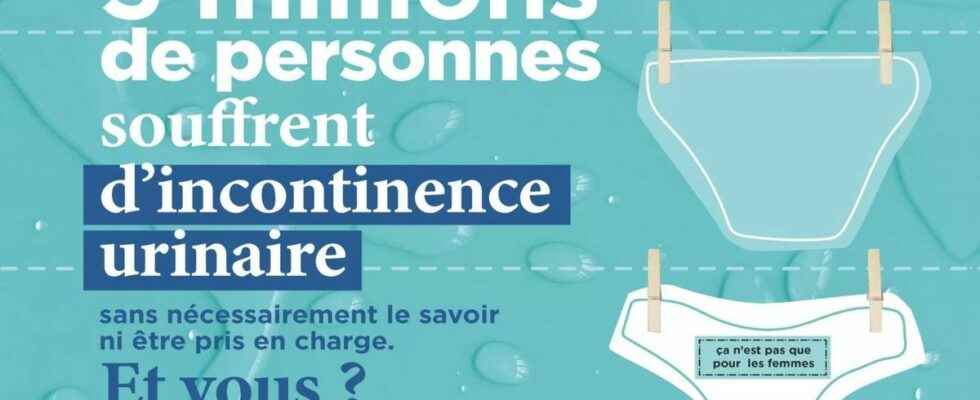Published ,
Reading 2 mins.
On the occasion of Continence Week, which takes place from March 14 to 20, the French Association of Urology (AFU) recalls that everyone can be affected by urinary incontinence and that it is necessary to lift the taboos on this subject.
A campaign to deconstruct clichés
Urinary incontinence is characterized by the involuntary loss of urine. Although the problem can be more and more frequent with age, it is not only postmenopausal women who have had several children who are affected by urinary leakage. Anyone can be affected by continence disorders, whether they are men, young people or those in their forties.
Also, this phenomenon can occur anywhere. The goal of Continence Week is to lift taboos on urinary leakage so that everyone (finally) dares to talk about it.
Children can be affected by this phenomenon, which is manifested by enuresis (wetting the bed while sleeping, day or night). This is the case for about 10% of children aged 7 years. Bedwetting can occur weekly or occasionally. More rarely, children aged 11 or 12 are still affected and the problem can persist until the age of 16 or 17, according to the AFU.
Older people are also part of the population that may be affected by continence disorders, often related to the aging of the bladder and surrounding tissues and/or muscles. And although it is a rather common problem among older individuals, the AFU reminds that it should not be considered as “normal”.
Furthermore, there is thestress incontinence that women can suffer from, but also men who have had their prostate removed.
The importance of talking about urinary incontinence
For example, talking about urinary incontinence in children is essential, because it is necessary to identify the causes, which can be very varied. This may be an inability to relax the urinary sphincter or a “neurological immaturity”. It also happens that traumas that took place during early childhood are at the origin of continence disorders, such as sexual abuse or even psychological violence.
The stakes are real, since continence disorders can be diagnosed in order to be properly treated. Indeed, as Professor Véronique Phé, urologist at Tenon Hospital in Paris, points out, “in 90% of cases, appropriate support solves the problem”.
This is also the opinion of Pr Jean-Nicolas Cornu, urologist and coordinator of the pelviperineology center of the Rouen University Hospital. Drug or surgical treatment is not necessarily indicated in case of continence disorders: “we can suggest [aux patients] very effective hygiene and dietary rules, physiotherapy, neurorehabilitation (rehabilitation at home by stimulation of the tibial nerve)”.
In addition, urinary leakage can be a sign of a more serious underlying disease, such as bladder cancer or a neurological pathology.
In adults, continence disorders do not resolve themselves and this is why anyone who has them should speak to their doctor in order to be referred to a urologist.
